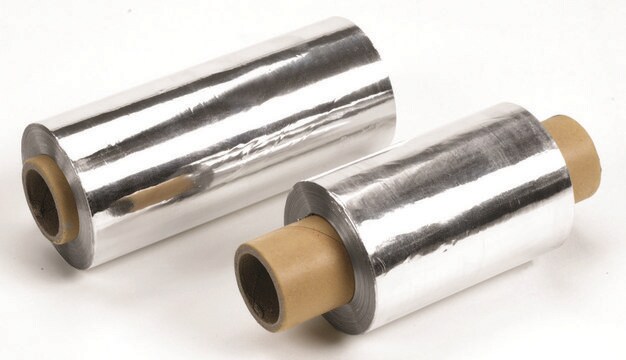266957
Aluminum
foil, thickness 1.0 mm, 99.999% trace metals basis
About This Item
Recommended Products
Quality Level
assay
99.999% trace metals basis
form
foil
autoignition temp.
1400 °F
resistivity
2.6548 μΩ-cm
thickness
1.0 mm
bp
2460 °C (lit.)
mp
660.37 °C (lit.)
density
2.7 g/mL at 25 °C (lit.)
application(s)
battery manufacturing
SMILES string
[Al]
InChI
1S/Al
InChI key
XAGFODPZIPBFFR-UHFFFAOYSA-N
Quantity
Storage Class
11 - Combustible Solids
wgk_germany
WGK 3
flash_point_f
Not applicable
flash_point_c
Not applicable
ppe
Eyeshields, Gloves, type N95 (US)
Choose from one of the most recent versions:
Already Own This Product?
Find documentation for the products that you have recently purchased in the Document Library.
Customers Also Viewed
Articles
In many technologies, performance requirements drive device dimensions below the scale of electron mean free paths (λe). This trend has increased scientific interest and technological importance of electrical resistivities at the nanoscale.
Biomedical implants are essentially foreign substances within the human body that must survive many years’ exposure to demanding mechanical and physiological conditions. Despite these challenges, metal implants have been widely used to substitute for or rebuild hard tissues such as bones and teeth.
The unique properties of the rare-earth elements and their alloys have brought them from relative obscurity to high profile use in common hightech applications.
Our team of scientists has experience in all areas of research including Life Science, Material Science, Chemical Synthesis, Chromatography, Analytical and many others.
Contact Technical Service


